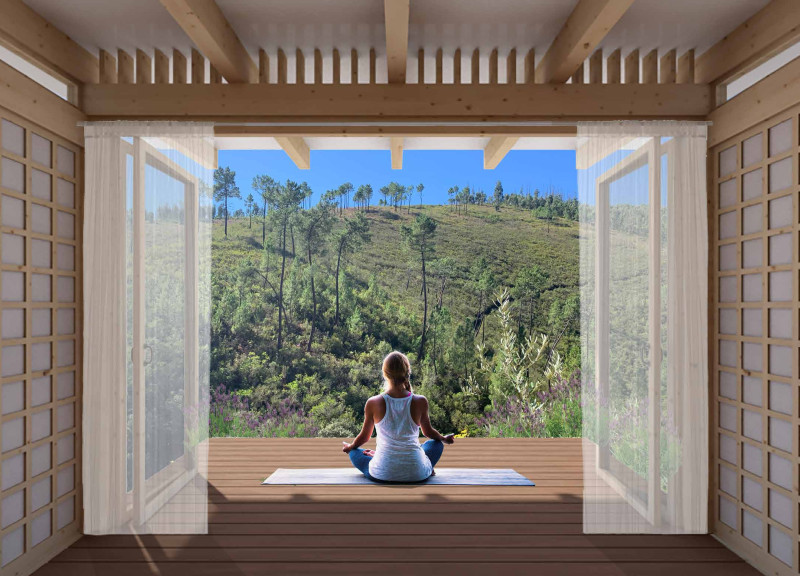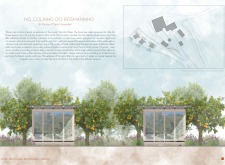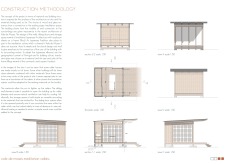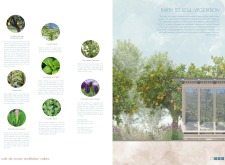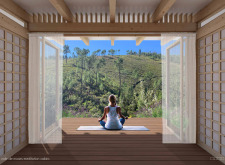5 key facts about this project
The Vale de Moses Meditation Cabins project is an architectural endeavor located in the serene landscape of Vale de Moses, Portugal. It consists of three meditation cabins designed to extend a retreat center, focusing on creating spaces that promote relaxation and mindfulness. The project harmonizes with the natural environment, emphasizing a deep connection between the built structures and the surrounding landscape.
The primary function of these cabins is to serve as tranquil spaces for meditation and personal reflection. Each cabin is strategically positioned to maximize views of the valley and nearby hills, utilizing the landscape's natural beauty to enhance the user experience. The architecture embodies simplicity and sustainability, aligning with contemporary practices that prioritize ecological consciousness.
One of the unique aspects of the design is the integration of organic materials that echo the traditional styles of Japanese architecture. The extensive use of wood creates a warm ambiance, while large glass windows facilitate the flow of natural light and provide unobstructed vistas. This thoughtful approach to material selection not only fosters comfort but also accentuates the connection to nature, making the experience more immersive.
The cabins employ an adaptable foundation system that responds to the variability of the local terrain. This flexibility ensures stability while allowing for minimal disruption to the natural landscape. The architectural design also incorporates sliding doors that extend living spaces into the outdoors, further blurring the line between interior and exterior environments.
The project incorporates elements of local flora, specifically aromatic plants such as lavender and citrus trees. This integration enhances the sensory experience for visitors and reflects an emphasis on biophilic design—encouraging occupants to engage with the local ecosystem uniquely.
The Vale de Moses Meditation Cabins stand out in their commitment to cultural resonance and environmental integration. By focusing on simplicity and ecological sustainability, this project showcases innovative design methodologies that align with contemporary architectural standards.
For a deeper understanding of how these architectural ideas come together within the Vale de Moses Meditation Cabins, including architectural plans, sections, and specific design elements, consider exploring the project presentation further. The insights gained from the architectural designs will enhance comprehension of the thoughtful approach that defines this project.


